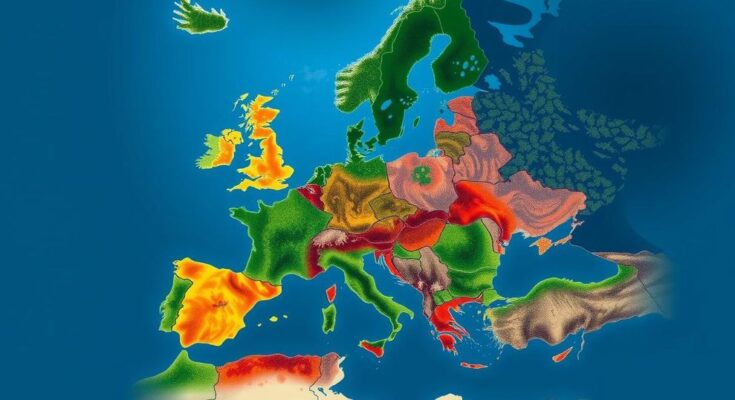This factsheet details how environmental changes directly and indirectly affect migrants’ realities and decisions, based on Flow Monitoring Surveys from Italy, Malta, and Spain conducted in early 2024. It analyzes sociodemographic profiles, environmental aspects influencing migration routes, and features Algeria as a critical case study illustrating these impacts.
This factsheet explores the profound effects of environmental changes on mixed migration patterns to Europe, utilizing new data acquired from Flow Monitoring Surveys (FMS) conducted from January to September 2024. The surveys incorporated specific climate-related inquiries to understand how environmental deterioration influences the decisions and lives of migrants.
The first section provides a detailed sociodemographic profile of the surveyed migrants, highlighting the diverse routes undertaken by respondents. The second segment presents the survey findings categorized by the different environmental factors affecting migration. Lastly, Algeria is examined as a notable case study, shedding light on the motivations of migrants originating from a nation severely impacted by climate change, thereby illustrating their impetus for migration due to climatic shifts.
Environmental changes pose significant challenges that can alter migration dynamics. This factsheet aims to elucidate how such changes impact the decision-making processes of migrants, specifically in the context of Europe. The data, sourced from Flow Monitoring Surveys in Italy, Malta, and Spain, underscores a burgeoning recognition of climate-induced migration as a critical factor affecting mobility patterns in the Mediterranean region. A comprehensive analysis provides insight into migratory trends and the complex interplay between environmental stresses and individual migration narratives.
In summary, this study emphasizes the significant role environmental changes play in shaping migration patterns to Europe. The results from the Flow Monitoring Surveys illuminate the diverse sociodemographic profiles of migrants and their routes, along with the direct impacts of climate-related issues on their decisions. The examination of Algeria as a case study reinforces the narrative of individuals migrating due to escalating environmental anomalies, underscoring the urgent need to address these challenges within policy frameworks.
Original Source: reliefweb.int




